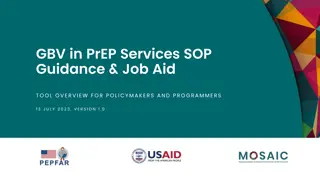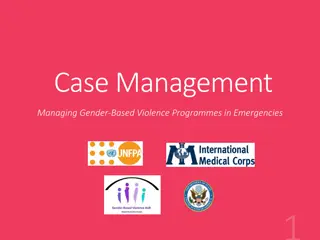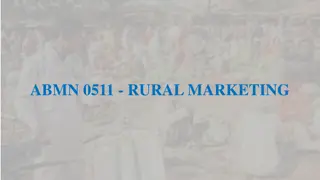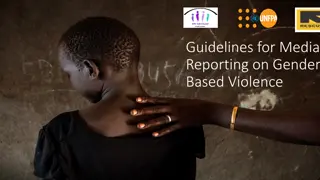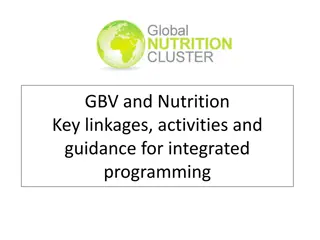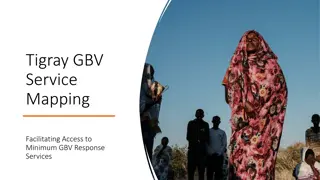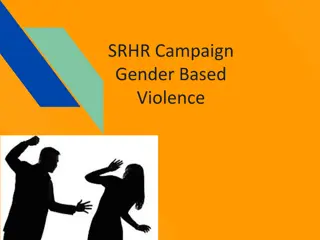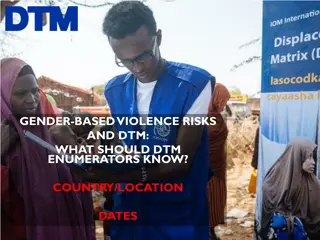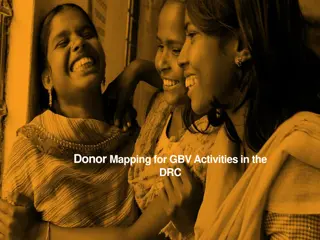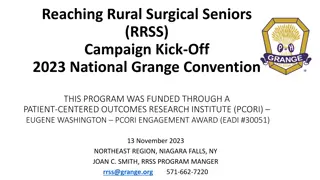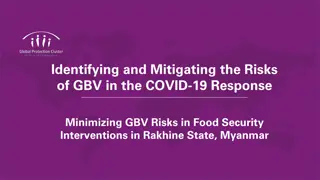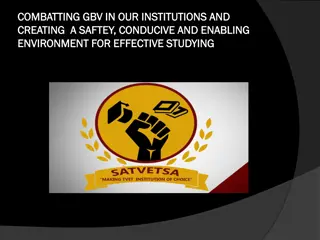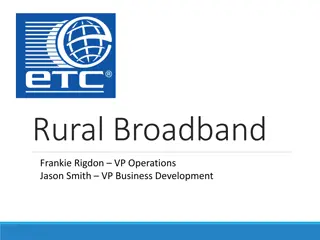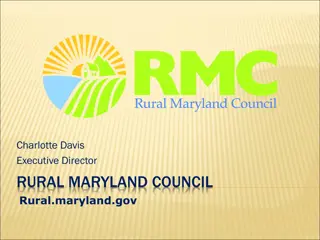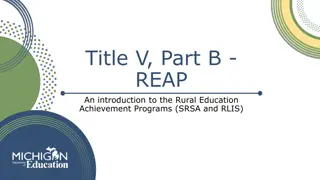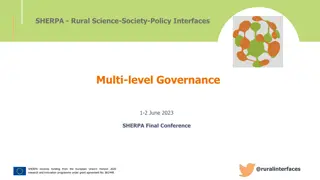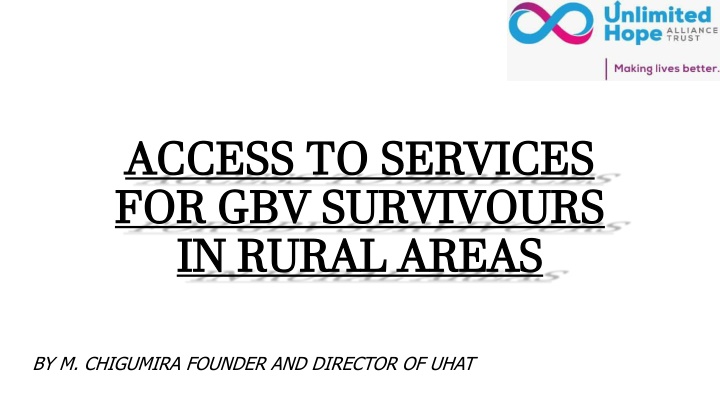
Access to Services for GBV Survivors in Rural Areas
In the Goromonzi rural district of Zimbabwe, survivors of domestic and sexual violence encounter barriers to accessing essential services. This includes challenges related to healthcare, legal assistance, counseling, and community support. Key barriers include limited access to health facilities, poor transport infrastructure, social stigma, and the constrained reach of NGOs. To address these challenges, potential solutions such as community awareness programs, mobile service units, policy advocacy, and partnerships are highlighted. The aim is to enhance access to crucial services for rural survivors of gender-based violence.
Download Presentation

Please find below an Image/Link to download the presentation.
The content on the website is provided AS IS for your information and personal use only. It may not be sold, licensed, or shared on other websites without obtaining consent from the author. If you encounter any issues during the download, it is possible that the publisher has removed the file from their server.
You are allowed to download the files provided on this website for personal or commercial use, subject to the condition that they are used lawfully. All files are the property of their respective owners.
The content on the website is provided AS IS for your information and personal use only. It may not be sold, licensed, or shared on other websites without obtaining consent from the author.
E N D
Presentation Transcript
ACCESS TO SERVICES FOR GBV SURVIVOURS IN RURAL AREAS ACCESS TO SERVICES FOR GBV SURVIVOURS IN RURAL AREAS BY M. CHIGUMIRA FOUNDER AND DIRECTOR OF UHAT
INTRODUCTION In the Goromonzi rural district, located in Zimbambwe, some survivours of domestic and sexual violence face significant barriers to accessing life-saving services, justice and support due to the socio- economic challenges and isolation.
ESSENTIAL SERVICES Medical services Availability of healthcare facilities (Hospital, Clinic) Trained healthcrae providers for GBV cases Facilitate trauma recovery and healing Legal Assistance Access to information regarding survivours rights Availability of legal representation and support services Counseling Trust and confidentiality are essential for a safe and supportive counseling enviroment Local NGOs and community programs to provide vital pschological support and fostering healing and trust.
BARRIERS TO ACCESS Health facilities Limited access to healthcare in rural areas due to scarce facilities, supplies, and staff, and long distances to urban hospitals. Transport infrastructure Poor road conditions and lack of public transport options hinder access to health and legal services Social stigma Cultural norms may prevent survivours especially women, from seeking help due to fear of judgment Availability of NGOs Various NGOs operate in rural area focusing on womens rights, GBV, healthcare and legal services but their reach and resources maybe limited
POTENTIAL SOLUTIONS Enhancing access to services Community awarness programs Conduct educational workshops to inform survivours about available resources and rights. Mobile services units Implement mobile clinics and legal assistance units to reach isolated areas Policy advocacy Advocate for government policies that priorities the needs of rural survivours . Partnerships Collaborate with local and international NGOs to enhance service delivery and fuding

